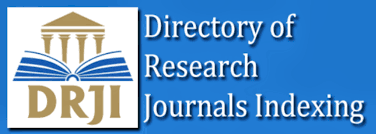Ombala Ekovongo: an enrichment to the 11th Class History Program at Liceu Samuel Lussate
Keywords:
Ombala Ekovongo, History Program, Teaching-Learning HistoryAbstract
The main objective of this article is to present an enrichment for the learning of Local History by readjusting the contents of the 11th Class History Subject program in order to describe the history of Ombala Ekovongo, assumed by the local population and transmitted through oral tradition. The program under study contains a brief narrative about the origin of the viyé (Bié), but this narrative appears incongruous in relation to the Local History of the said Province, which is transmitted through oral tradition in Ombala Ekovongo and which is assumed by the population in general. For the present investigation, a descriptive, qualitative and quantitative study was used, as stated in the methodological section of this article. For its materialization, different methods of analysis were used: theoretical: Historical – logical, Analysis-Synthesis, Bibliographical Research and Documentary Research in relation to empirical level methods are the following: Statistical-Mathematical, and Questionnaires by surveys.
References
Cahila, W. & Kandjo, J. S. (2023). A fotografia: recurso no processo de ensino aprendizagem na 10ªclasse- angola, o território e as populações mais antigas. Revista pedagógica do Bié, Vol.3, nº1, 1-18.
Fernandes, W.C. (2021). Práticas Pedagógicas e o Ensino-Aprendizagem da História. Nhconteudo Editora.
Fernandes, W.C. (2023). O poder tradicional na actualidade: um olhar em torno da Ombala Ekovongo no municipio do Kwitu. (Dissertação de Mestrado, Instituto Superior de Ciências da Educação da Huíla-ISCED-HUÍLA-ANGOLA).
Figuereido, F. B. (2016). Tradição, Invenção, História: Notas Sobre a “Controvérsia Jaga”. Revista perspectiva Histórica v: nº8.
Florêncio, F. (2009). No Reino da Toupeira, as Autoridades Tradicionais no do Mbalundu e o Estado Angolano.
Gil, A.C. (2006). Didáctica do Ensino Superior. 1ªedição. Brasil.
Guebe, A. (2019). Valorizar a tradição como uma das vias para a moralização da sociedade angolana: o caso Ombala Ekovongo, Revista transversos, 15 (231-252).
Olderogge, D. (2010). História Geral de África: Migrações e diferenciações (2010). Metodologia e Pré-História da África . Volume I.
Libâneo, J. C. (1994). Didáctica, Cortez editora.
Libâneo, J. C.(2006). Didáctica, Cortez editora.
Lopes, J. M. e Capumba, P. A. (2018). História da 11ªClasse. Textos Editores, Angola.
Miranda, F.S. e Echevarría, H. R. (2017). Aplicação Didáctica no Ensino Superior, Editora Mayamba.
Piletti, C.(2004), Didáctica Geral, Editora Mica, 23ª edição.
Programa de História -11ªClasse, Área de Ciências Económica-júridicas e de Ciências Humanas. (2014). Editora Moderna, S.A.
Downloads
Published
How to Cite
Issue
Section
License
Copyright (c) 2023 Waldmar Cahila, João Sicato Kandjo, José António Milongo

This work is licensed under a Creative Commons Attribution-NonCommercial-ShareAlike 4.0 International License.















